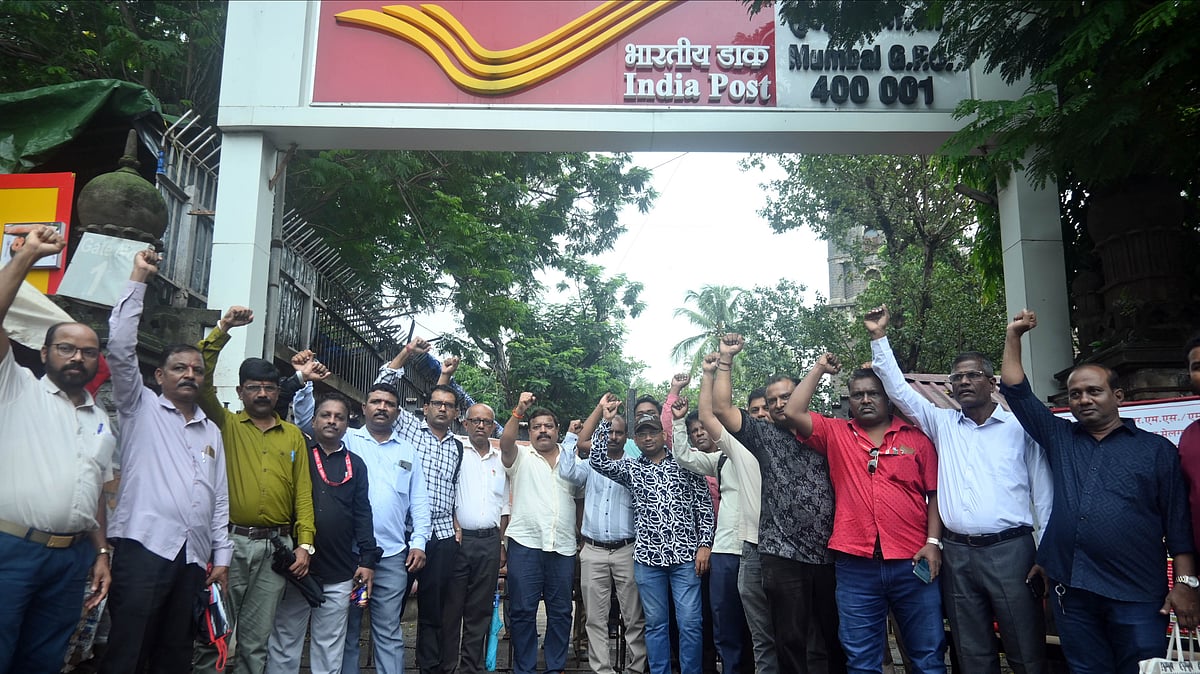Mumbai Largely Unaffected By Bharat Bandh, Though Some Bank And Postal Staff Join Strike
On Monday, the forum of central trade unions and independent sectoral federations, an association of 10 trade unions, called for an all-India general strike on Wednesday.

Mumbai Largely Unaffected By Bharat Bandh, Though Some Bank And Postal Staff Join Strike | FPJ/ Vijay Gohil
Mumbai remained largely unaffected by the Bharat Bandh call given by trade unions to protest against multiple long-pending issues. Although the unions claimed that around 25 crore public and private sector employees would participate in the strike, it saw a mixed reaction from traders and workers across sectors.
On Monday, the forum of central trade unions and independent sectoral federations, an association of 10 trade unions, called for an all-India general strike on Wednesday. The unions from all sectors of the organised and unorganised economy across the country had called for the nation-wide strike against the central government’s anti-worker, anti-farmer and anti-national policies.
The strike was said to affect the services of multiple sectors including banks, postal department, telecommunication, public transport, LIC, electricity, petroleum, mining and other private as well as state government departments. The strike call saw a significant response in states like Kerala and West Bengal with a few instances of forced shutdown. However, Maharashtra did not record an enthusiastic participation in the strike.
In the country’s financial capital, the general post office (GPO) near the Chhatrapati Shivaji Maharaj Terminus wore a deserted look as its employees participated in the strike and a brief demonstration outside their offices. The operations at the Punjab National Bank in Fort also suffered a blow as the employees kept themselves off-work and gathered outside the bank with All India United Trade Union Centre flags.
In a statement, the forum of central trade unions and independent sectoral federations had earlier said, “The government's economic policies are leading to increased unemployment, inflation of essential commodities, fall in wages, reduction in social sector expenditure on education, health and basic civic amenities. This is increasing inequality and misery for the poor, low-income groups and even the middle class. The government has abandoned its role as a welfare state and its policies are clearly being run in the interest of domestic and foreign corporations.”
RECENT STORIES
-
-
-
-
-